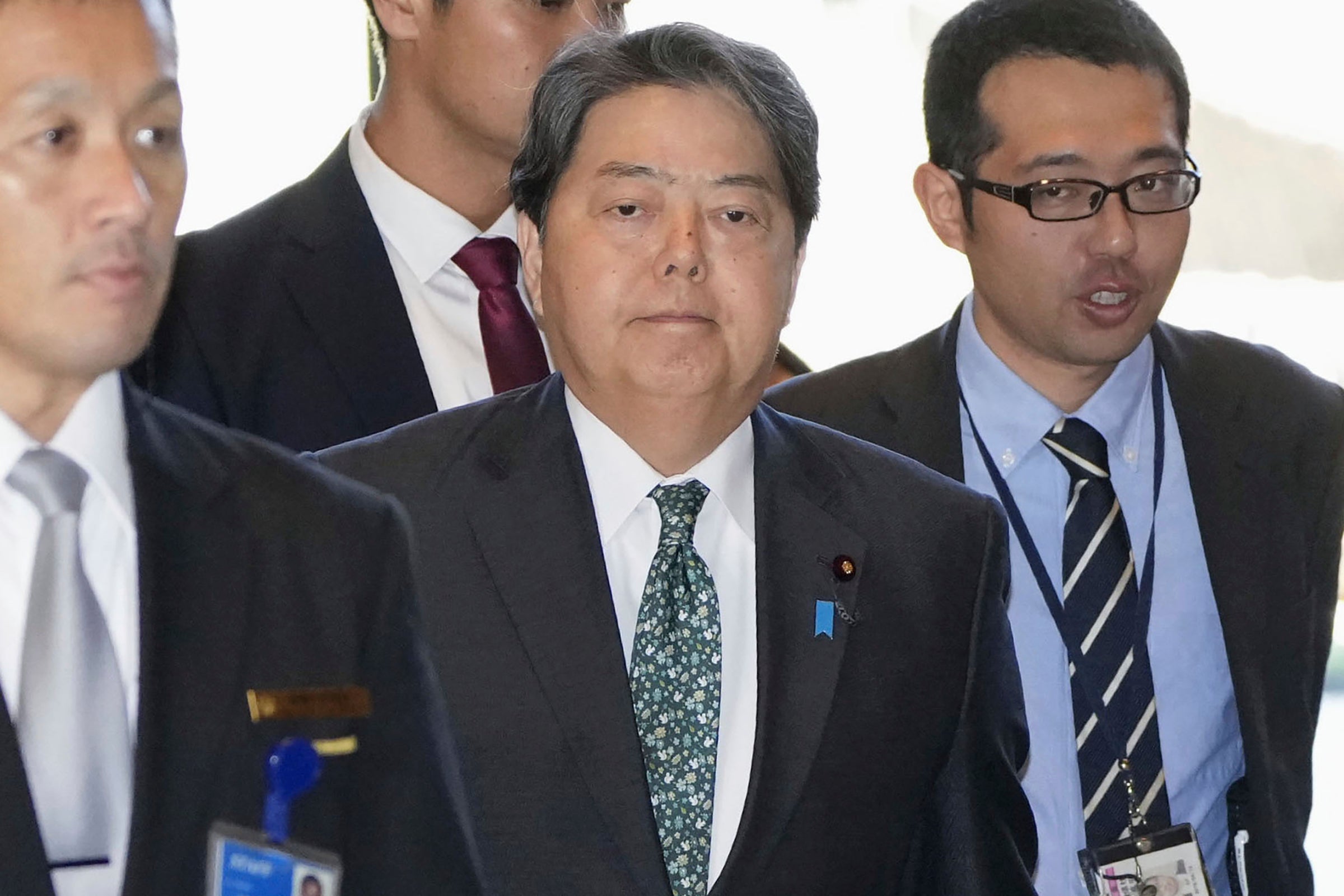Japan's Kishida replaces 4 ministers linked to slush funds scandal to contain damage to party
Japanese Prime Minister Fumio Kishida has replaced four of his Cabinet ministers in an effort to contain the damage from a widening slush funds scandal that has shaken his governing party

Your support helps us to tell the story
From reproductive rights to climate change to Big Tech, The Independent is on the ground when the story is developing. Whether it's investigating the financials of Elon Musk's pro-Trump PAC or producing our latest documentary, 'The A Word', which shines a light on the American women fighting for reproductive rights, we know how important it is to parse out the facts from the messaging.
At such a critical moment in US history, we need reporters on the ground. Your donation allows us to keep sending journalists to speak to both sides of the story.
The Independent is trusted by Americans across the entire political spectrum. And unlike many other quality news outlets, we choose not to lock Americans out of our reporting and analysis with paywalls. We believe quality journalism should be available to everyone, paid for by those who can afford it.
Your support makes all the difference.Japanese Prime Minister Fumio Kishida replaced four of his Cabinet ministers Thursday in an effort to contain the damage from a widening slush fund scandal that has shaken his governing party and his grip on power within it.
The shakeup is Kidhida's third of his Cabinet, whose support ratings have continued to drop to new lows. The scandal involves the Liberal Democratic Party’s largest and most influential faction. It used to be led by the late former Prime Minister Shinzo Abe, who was assassinated in 2022.
Kishida replaced four ministers from the Abe faction: Chief Cabinet Secretary Hirokazu Matsuno; Economy and Industry Minister Yasutoshi Nishimura; Agriculture Minister Ichiro Miyashita; and Internal Affairs Minister Junji Suzuki. All have emerged as the alleged recipients of suspected kickbacks of unreported fundraising proceeds.
A purge of members from that wing of the party is key to Kishida's balancing act within the party but could trigger a power struggle. Kishida doesn't have to call a parliamentary election until 2025, but the Liberal Democratic Party has a leadership vote in September.
Matsuno said in his final news conference Thursday that he had submitted his resignation to Kishida in response the fundraising allegations, which he said “have shaken the public trust in politics." He said he also submitted resignations of behalf of three other ministers and a Kishida aide.
Foreign Minister Yoshimasa Hayashi, who belongs to Kishida's party faction, was named to replace Matsuno's role as the prime minister's right-hand person in the Cabinet. Former Justice Minister Ken Saito was given the role of economy minister.
Seven vice ministers and aids belonging to the Abe group also tendered their resignations, while three lawmakers quit their top LDP posts. Kishida is reportedly deciding on their replacements within the next few days rather than removing all together to cushion the impact.
In the fundraising scandal, dozens of LDP lawmakers, mostly members of the Abe faction, were suspected of systematically failing to report about 500 million ($3.53 million) yen in funds in possible violation of campaign and election laws, according to media reports. The money is alleged to have gone into unmonitored slush funds.
Collecting proceeds from party events and paying kickbacks to lawmakers are not illegal if recorded appropriately under the political funds law. Violations can result in prison terms of up to five years in prison and fines of up to 1 million yen ($7,065), but experts say prosecution is difficult as it requires proof of a specific instruction to an accountant to not report a money transfer.